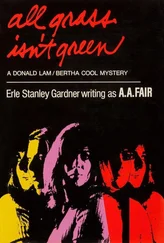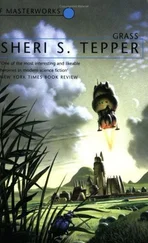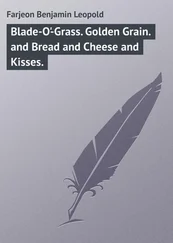And so on and so forth. When I phoned Mother, she showered me with reproaches: “You're a fine one to talk. For years you don't give a shit about our Konradchen, and now all of a sudden you get a bee in your bonnet and start playing the concerned father…”
I also phoned Gabi, and then on the weekend drove to sleepy little Mölln, even bringing flowers. Konny, I heard, was in Schwerin, visiting his grandmother. When I began to unload my worries on my ex, she cut me off: “How dare you come to my house and accuse my son of consorting with right-wing extremists…”
I tried to stay calm, reminding her that only three and a half years ago the idyllic town of Mölln had experienced a terrible fire: two apartment houses where Turks were living had been torched. All the papers had been panting to cover it. Even yours truly had concocted reports for the wire services. Alarm bells had gone off abroad, because it seemed to be starting up again in Germany… There had been three casualties, after all. Several kids were caught, and two were hit with long jail sentences, but perhaps a successor organization, some of these rabid skins, had sought out our Konny. Here in Mölln, or possibly in Schwerin…
She laughed in my face: “Can you picture Konrad with those loudmouths? Be serious! A loner like him in a pack? That's ridiculous. But accusations like yours are typical of the kind of journalism you've always engaged in, no matter who you happened to be working for.”
Gabi could not resist reminding me in detail of the time I wrote for the Springer conglomerate, even though thirty years had passed since then. She recalled my “paranoid ravings against leftists”: “And by the way, if anyone has secret leanings to the right, its you; you haven't changed…”
I suppose. I know my own abysses, know how hard it is to keep the lid on. Do my best to remain noncommittal. Generally present myself as neutral. When I have an assignment, regardless of who gave it, I just establish the facts, report what I find, but don't back down…
So because I wanted to find out what was going on — and from Konny himself — I settled into a room not far from my ex, in a hotel overlooking the lake. I kept phoning Gabi, asking to speak with my son. On Sunday evening he finally turned up, having come from Schwerin by bus. At least he wasn't wearing combat boots, only normal suede ankle boots, with jeans and a colorful Norwegian sweater. He actually looked nice, and hadn't shaved off his naturally curly hair. His glasses gave him a know-it-all appearance. He paid no attention to me, had little to say altogether, only a few words to his mother. For supper she served salad and openfaced sandwiches, with apple juice.
But before Konny could disappear into his room after we'd eaten, I waylaid him in the hall. I kept my questions casual: how things were going in school, whether he had friends, maybe a girlfriend, what sports he played, how he liked the birthday present his grandmother had given him — I could guess how much it cost — whether the modern means of communication, like the Internet, for instance, opened up new areas of knowledge for him, what sort of thing he found particularly interesting — if he was into surfing the Net.
He seemed to be listening as I ran through my litany. I thought I could detect a faint smile on his noticeably small mouth. Yes, he was smiling! Then he took off his glasses, put them on again, and looked straight through me, just as he had at the supper table. He answered softly, “Since when do you care what I'm up to?” After a pause — my son was already standing in the doorway to his room — he delivered the knockout punch: “I'm doing historical research. Does that answer your question?”
The door was closed now. I should have called out, “Me too, Konny, me too!” The same old stories. It's about a ship. In May '39 it brought a good thousand volunteers from the victorious Condor Legion home. But who's interested in that nowadays? You, Konny?
* * *
At one of the meetings he sets up for us, calling them working sessions, he said the following: Properly speaking, any strand of the plot having to do directly or loosely with the city of Danzig and its environs should be his concern. For that reason, he, and no one else, should have been the one to narrate, whether briefly or at length, everything involving the ship: the circumstances of its naming, the purpose it fulfilled after the war began, and hence also its end off the Stolpe Bank. Soon after the publication of that mighty tome, Dog Years, this material had been dumped at his feet. He — who else? — should have been the one to dig through it, layer by layer. There had been no shortage of references to the fate of the Pokriefkes, chief among them Tulla. It was safe to assume that what was left of the family — Tulla s two older brothers had been killed in action — were among the thousands and thousands of refugees who managed to squeeze onto the overloaded Gustloff in the last minute, and with them the pregnant Tulla.
Unfortunately, he said, he hadn't been able to pull it off. A regrettable omission, or, to be quite frank, failure on his part. But he wasn't trying to make excuses, only to admit that around the mid-sixties he'd had it with the past, that the voracious present with its incessant nownownow had kept him from producing the mere two hundred pages… Now it was too late for him. He hadn't invented me as a surrogate, rather he had discovered me, after a long search, on the list of survivors, like a piece of lost property. Although I had a rather meager profile, I was predestined: born as the ship was sinking.
He went on to say that he was sorry about the business with my son, but how could he have known that Tulla's grandson was hiding behind the ominous home page www.blutzeuge.de, though it should probably come as no surprise that Tulla Pokriefke ended up with such a grandson. She'd always gone to extremes, and besides, as was obvious, she was not a person you could keep down. But now, he said encouragingly to his assistant, it was my turn again; I had to report on what happened with the ship after it transported some of the troops of the Condor Legion from a Spanish harbor to Hamburg.
To make a long story short, one might say: And now the war began. But we're not there yet. First the KDF ship had a lovely, leisurely summer during which it was allowed to return to the familiar Norway route for half a dozen cruises. Still without shore excursions. The majority of the passengers were workers and salaried employees from the Ruhr District and Berlin, from Hanover and Bremen. Also small groups of Germans residing abroad. The ship sailed into the Byfjord and afforded the vacationers, standing at the rail with their cameras, a view of the city of Bergen. The schedule also included the Hardangerfjord, and finally the Sognefjord, where people snapped an especially large number of pictures for their albums. Into July the midnight sun was provided as an extra, to be gaped at and stored as an experience. The cost of the five-day trip, up slightly, now came to forty-five reichsmarks.
Still the war did not begin; instead the Gustloff was pressed into the service of physical culture. For two weeks a peaceful gymnastics meet took place in Stockholm, the Lingiad, named after Pehr Henrik Ling, the Swedish equivalent of our Gymnastics Father Jahn, I assume. The recreation vessel became the residence for over a thousand German gymnasts, male and female, all dressed alike, among them maidens from the Labor Service, the national horizontal-bar team, but also old gentlemen who still worked out on the parallel bars, as well as gymnasts from the BDM's Faith and Beauty division, and many children drilled for mass gymnastics demonstrations.
Читать дальше











